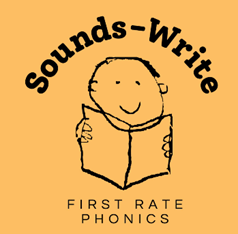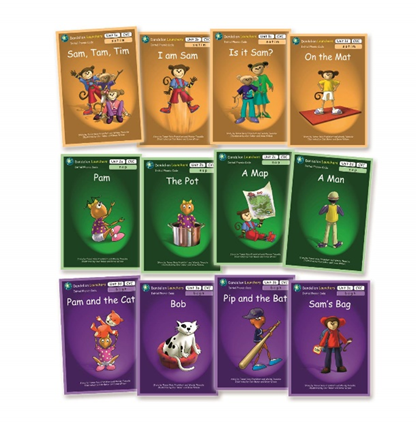Early Reading and Phonics
At Belgrave St. Peter's Primary School we believe that reading and the love of reading lays the firm foundation for every child’s future. It is a crucial area which will allow children to access all areas of the curriculum successfully. We believe that enjoyment and success in reading opens doors to a world of knowledge.
Nursery
Through singing, stories, rhymes and imagination we open up a world of new vocabulary and language. Weekly Word Aware sessions also help children to understand and apply new vobabulary and concepts. Early matching, categorising, describing and sorting activities within the Nursery environment are used to develop many skills needed for early reading. We use Letters and Sounds Phase 1 planning to help us to achieve this.
Books are shared with the children daily and children are encouraged to look at and talk about story and information books in their play by finding books in all areas of the classroom.
We have weekly 'Stay and Read' sessions where parents come to class to share books with the children and can also borrow books to share at home with their families.
Reception

As children progress into Reception, a love of books continues to be a huge focus. Daily phonics teaching through Sounds Write phonics supports children’s understanding that letters represent sounds in spoken words which will support their reading.
At Belgrave we use the ‘Sounds-Write’ programme as our new approach to teaching our children in EYFS and Key Stage 1 to read, spell and write.
Sounds-Write is effective in teaching pupils to read, spell and write because it starts from what all children know from a very early age – the sounds of their own language. From there, it takes them in carefully sequenced, incremental steps and teaches them how each of the 44 sounds in the English language can be spelt.
Children in their daily phonics sessions are taught conceptual knowledge and skills that enable them to say the sounds and read the words.
The programme begins by teaching an 'Initial Code'. During this phase, the children learn that:
- sounds can be represented by spellings with one letter, e.g. c-a-t
- some spellings are written with a double consonant, e.g. b-e-ll
- some spellings are written with two different letters, e.g. sh-o-p
Find the video and leaflet below which will share with you more about Sounds-Write.
https://sounds-write.co.uk/wp-content/uploads/2023/03/Sounds-Write-at-Plain-Talk-2023.pdf
A love of books is developed by sharing songs, stories and rhymes, providing lots of opportunities to talk and re-enact stories or follow children’s interests through books. Books are shared with the children daily and children are motivated to look at and talk about story and information books in their child play by finding books in all areas of the classroom.
Reading at home
In EYFS and KS1 children bring home books from school and these books have been produced by Sounds-Write, Dandelion Launchers and Dandelion Readers. When read daily, these books help to consolidate and maximise the children’s understanding of phonics. These books are fully decodable texts that build on the knowledge or ‘code’ that is being taught during Sounds-Write phonics lessons. We also use them in our guided and shared reading.
In EYFS, you should expect to receive your child’s first decodable reading book around October half term. This is to allow the children to have a secure understanding of the code in the book. We do not give children books to read at home where they are faced with something they don’t know.
We teach each ‘code’ in Reception and KS1 for 2 weeks. Once the new code has been taught, a reading book will be sent home so that your child can practise reading it. It is a very good thing if your child reads their book with confidence. This means they have remembered the new code they have been taught at school. It does not mean it is ‘too easy’.
Each child will take home two reading books every week, one is for sharing with their families over and over and will be chosen at our 'Stay and Read' parent/child weekly session. The other is a decodable phonic book that the child should attempt to read independently. Children find it easier to learn to read and spell if they are taught pure sounds. You might like to watch this Youtube video to make sure you are using the correct pure sounds with your child at home:
Pure sounds embedded video
How can you support your child at home?
There is much you can do to support your child at home.
- Talk to them! The most important thing you can do is to talk to your child and listen to them when they are talking to you. Try to extend their vocabulary range and their skill at talking in increasingly more complex sentences. For example, try to teach them alternative words for ideas, or nouns they already know.
- Read to them and always discuss the story you are reading to try to build your child’s comprehension skills and understanding.
- Practice the sounds they know at home. There are flashcards available to buy - we will talk .
- Listen to your child read every night. Find a quiet time to hear your child read and use lots and lots of praise to encourage them.
Look out for our Reading Workshops for parents and carers, where you can find out more details of how to help at home.